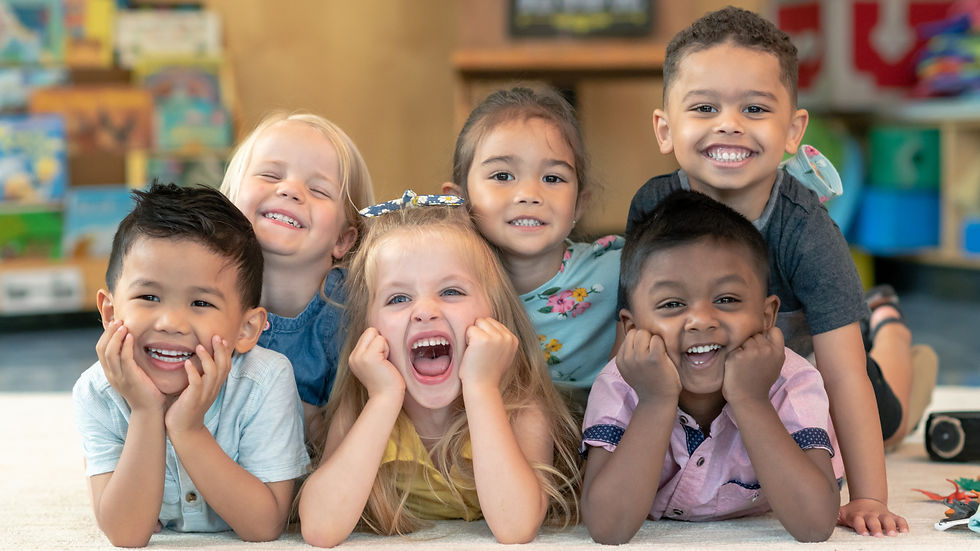The Montessori Method's Science: Why It Is Effective
- Jul 9, 2025
- 3 min read

The answer lies in both observation and science.
Modern research in child psychology and neuroscience has affirmed what Dr. Maria Montessori intuitively discovered: when children are given the freedom to learn in a structured, thoughtfully prepared environment, they flourish, academically, emotionally, and socially.
In this post, we’ll explore the scientific foundations of the Montessori method of teaching, and why it remains one of the most powerful approaches in early childhood education.
🧠 1. Montessori Supports Brain Development
Neuroscience confirms that the early years (ages 0–6) are the most critical for brain development. During this time, a child’s brain forms over 1 million new neural connections every second.
Montessori environments are uniquely designed to make the most of this window. The method encourages:
Sensorial learning, which strengthens cognitive processing
Hands-on repetition, which reinforces neural pathways
Self-directed choice, which activates the prefrontal cortex, the brain’s control center for decision-making and problem-solving
In fact, studies using fMRI brain scans have shown that Montessori students exhibit greater executive function, which includes focus, memory, impulse control, and adaptability, all essential for long-term academic success.
🧩 2. Academic Gains That Go Beyond Test Scores
Contrary to the myth that Montessori is “too relaxed,” research shows that Montessori students often outperform their peers in traditional schools, especially in math, language, and social development.
One study published in Science compared Montessori students to non-Montessori students at age 5 and found that:
Montessori children scored higher in reading and math
They displayed more positive social behavior
They had better academic and emotional performance
This is especially important, so if you are searching for preschool near me or kindergarten near me, or daycare near me, when children begin to build foundational academic skills. Montessori’s multi-sensory materials allow children to move from concrete to abstract understanding naturally, making learning not only effective but enjoyable.
🧘 3. The Calm, Focused Mind: Executive Function in Action
The Montessori classroom is designed to nurture executive function, a critical set of skills that helps children plan, focus, regulate emotions, and persist through challenges.
Instead of moving from one subject to another every 15 minutes (as in many traditional preschools), Montessori children engage in long, uninterrupted work periods that promote deep focus and independent learning.
This helps them develop:
Self-regulation: Learning how to manage emotions and behavior
Delayed gratification: Choosing to finish a task over immediate distractions
Goal setting: Selecting work, sticking with it, and completing it
Studies have shown that strong executive function in early childhood predicts academic success, emotional stability, and even career achievement later in life.
👫 4. Social and Emotional Intelligence Flourish in Montessori
Montessori education places a strong emphasis on cooperation, empathy, and civility.
Instead of competitive grading or rewards, children are taught:
Respect for themselves, others, and their environment
Conflict resolution through language and active listening
Compassion and cooperation via mixed-age classrooms and peer mentoring
This kind of emotional education is just as critical as reading and math. In fact, a Harvard study found that social-emotional skills in kindergarten were better predictors of success in adulthood than test scores.
Montessori children learn how to think and feel, not just what to memorize.
🌱 5. A Lifelong Love of Learning
At the heart of Montessori is the belief that children are naturally curious, and that the best education fuels, rather than controls, that curiosity.
When kids are allowed to follow their passions at their own speed, they:
Retain more knowledge
Take ownership of their learning
Feel a sense of joy and motivation that carries into elementary school and beyond
One of the long-lasting advantages of the Montessori teaching approach is this internal motivation. Children don’t just learn, they want to learn.
We at Elements Montessori have personally witnessed the efficacy of this approach. Whether your child is entering preschool, kindergarten, or transitioning from daycare, Montessori preschool offers a solid, research-backed path forward.
Here’s what sets our school apart:
Certified Montessori educators
A carefully prepared environment
Mixed-age classrooms
Daily opportunities for independence and leadership
A friendly, encouraging neighborhood in the center of Spring, Texas If you are searching for preschool spring tx, kindergarten spring tx, or daycare spring tx.
🗓️ Ready to Explore Montessori for Your Child?
Discover Montessori preschool near me, our method can support your child’s unique strengths. Whether you're just starting your early childhood education journey or seeking a stronger academic foundation, we’re here to help.
_edited.png)



Comments